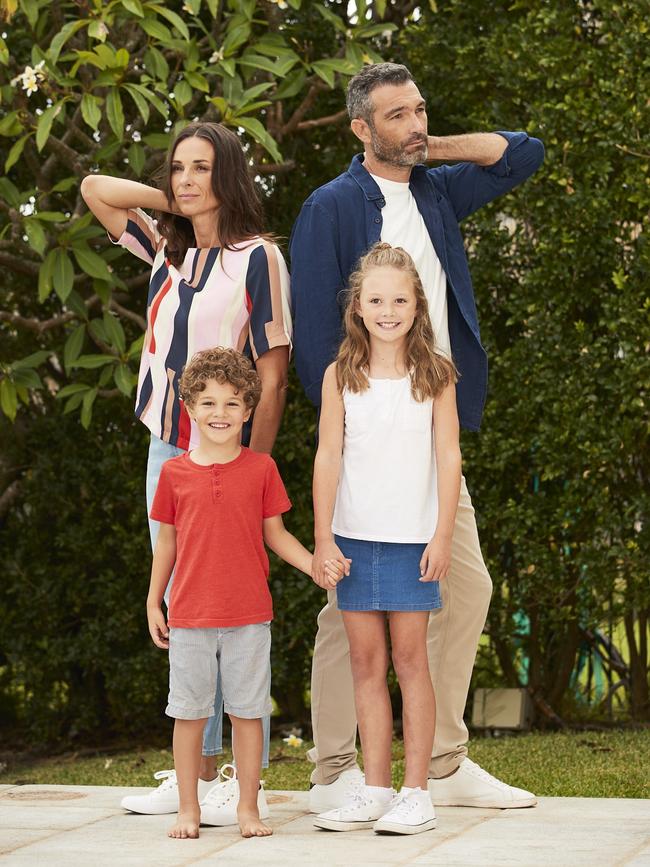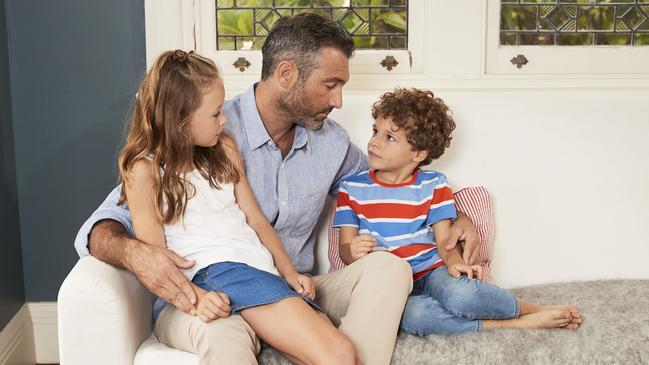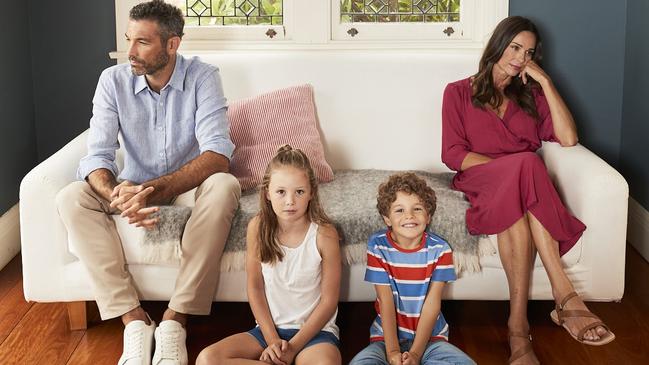Divorce: How to tell your children you’re separating
Telling your children you’re splitting up is one of the most poignant conversations you’re ever likely to have. Keep this expert advice in mind when preparing for ‘the talk’.
Relationships
Don't miss out on the headlines from Relationships. Followed categories will be added to My News.
Breaking the news to your children that you’re separating is the first of many challenges that come with co-parenting.
From negotiating custody and child support to introducing new partners, dealing with school issues and sharing special occasions, raising children together, but separately, can be a minefield.
“Telling your children is likely to be one of the most painful things you will ever do,” says psychologist and Relationships Australia NSW chief executive Elisabeth Shaw.

“Couples have often talked a great deal about it themselves, but once you tell your children, there’s a feeling that you can’t take it back; it’s the moment it all becomes real.”
For children, finding out about their parents’ separation is also a defining moment.
“Many will say: ‘I remember the moment my parents told me.’ ”
Getting the conversation right is important and can help to set a positive tone for the co-parenting journey that follows.
“Sit down and tell them — don’t let them overhear it during an argument,” Shaw says.
“What happens after that first conversation is what really determines whether a separation will have lifelong reverberations for your child.”
Here are some of the key things to say and do to help your child understand and accept a split …
DO … keep it in perspective
Parents may dread their children’s reaction and fear the damage that a separation will cause them, but it needn’t be a traumatic process. The Australian Temperament Project, which tracked thousands of children from infancy to adulthood, found little difference in the psychological outcomes for children from broken families versus those whose parents stayed together.
MORE FROM BODY+SOUL:
EAT YOUR WAY TO BETTER MENTAL HEALTH
TOP 7 WELLNESS EXPERIENCES AROUND THE WORLD
“It can be very confronting news, but it doesn’t have to be the end of the world as they know it,” Shaw says.
“If parents can manage to work cooperatively and amicably, their children’s lives can continue in a relatively normal way.”
According to Shaw, many children will see it coming.
“When a separation comes at the end of a long pattern of fighting, some kids will think it’s about time,” she says.
DO … get your story straight first
Ideally, both parents should be present when telling children about their separation. This may require getting together beforehand to discuss what to say, even if it requires a counsellor’s help to stay on track.
“Talk about what you want to achieve and get your story straight,” Shaw advises.
“What one partner thinks is a neutral explanation, the other might see as inflammatory. Work it out beforehand so there won’t be anything that triggers you to lose it in front of the kids.”

DON’T … rush the chat
This isn’t a conversation to have before dashing off to school. It doesn’t require an all-night D&M, but leave plenty of time for children to get their heads around the idea.
“While the conversation may only take 15 minutes, as the evening rolls on, kids will come up with more questions, so choose a time when you can be around for reassurance.”
DON’T … tell them too far ahead
Financial and practical realities may require a couple to continue living together for weeks or even months after they decide to separate. Shaw suggests waiting until it’s a more imminent reality before telling the kids.
“You can introduce the topic and let them know you’re having problems, but you don’t need to tell them about a separation three months out. It can be confusing if you present them with this big news, but life continues as normal.”
For more information, go to westpac.com.au/help/lifemoments/separation-divorce/

DO … say you both love them
Children need to be reassured that their parents’ love for them won’t change once their relationship ends.
Conversely, saying things like “Dad and I still love each other but can’t live together” can be confusing as the nuances of adult emotions are difficult for children to grasp.
“Saying ‘we don’t love each other anymore’ can actually make a lot of sense to children,” Shaw says.
“You could say ‘we’ll always care about each other’ — if it’s true — and ‘we’re working together for you’.”
DO … reassure them it’s not their fault
Make a clear distinction between what’s happening between the adults and what this means
for the children.
“Sometimes parents will say ‘Dad has left us because he doesn’t love us anymore’,” Shaw says.
“This can be devastating for children. In the vast majority of cases, a separation is about the adult relationship ending, not about a parent not wanting their children. Kids should be free to love and enjoy their time with both parents.”

DON’T … answer all their questions
Don’t feel obliged to answer everything on the spot, especially if this means floating options you haven’t fully considered.
“It’s not the time to start negotiating, planning and bargaining when everyone is upset,” Shaw says.
Be prepared for an ongoing dialogue in the days and weeks that follow.
“It’s important to listen to children, to engage from their perspective and make them part of the planning, but that doesn’t mean they’re running the show.”
Don’t air all your dirty laundry either, regardless of how many questions are thrown at you. “Give them the information they need, but remember you’re entitled to your privacy,” Shaw says.
“Just because they ask you questions, doesn’t mean you have to answer them all.”
DO … Paint a picture of what will happen
Younger children especially can benefit from a tangible description of what a separation will mean for them.
“Break it into bite-sized information, such as ‘one of us will have a separate house; you’ll be able to visit and will have your own bedroom there’,” Shaw says.
“Reassure them that their world is safe.” If you have kids of different ages, tell them together, but break it down to a level the youngest one will understand, Shaw advises.
DON’T … Promise them a puppy
No amount of bribery will persuade kids to feel happy about separation. Give them the permission to feel sad, without trying to use gifts or promises to lighten the mood.
“It’s important to acknowledge this is sad for all of you — often parents will cry when they tell their children, and that’s OK,” Shaw says.
“Buying them some form of compensation isn’t helpful and won’t fix it.”
Originally published as Divorce: How to tell your children you’re separating


